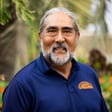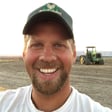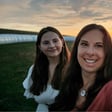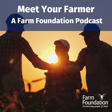
1. Farm Foundation’s Meet Your Farmer Podcast with Klaas Martens
Farm Foundation’s Meet Your Farmer podcast featured Klaas Martens in season 1, episode 1. Klaas is a third-generation farmer in New York. He operates Martens Farm and Lakeview Organic Grain Mill with his wife Mary Howell Martens and their son Peter. On 1,600 acres, he produces numerous crops, including corn, soybeans, spelt, wheat, einkorn, emmer, triticale, buckwheat, oats, barley, rye, cabbage, dry beans, and hay. He’s been farming since the 1970s and shifted to organic farming in the 90s. Klaas is a Farm Foundation Roundtable Fellow (since 2015) and also serves on the Farm Foundation Board of Directors. He also serves as a mentor in our Young Farmer Accelerator Program.
In this episode, Klaas discusses being the son of immigrant farmers, how his farming practices changed over the years, and one of his favorite things about wheat. He also shares some stories of how he has helped young farmers get into farming and the importance of community.
Video presentation referenced in episode: My Organic Grain Journey with Klaas Maartens (https://www.youtube.com/watch?v=zsR00Y1N6Yg), recorded at the 0Grain 2024 Winter Conference.
Music: "Country Roads" by Sergii Pavkin from Pixabay
Reach us at communication@farmfoundation.org.




